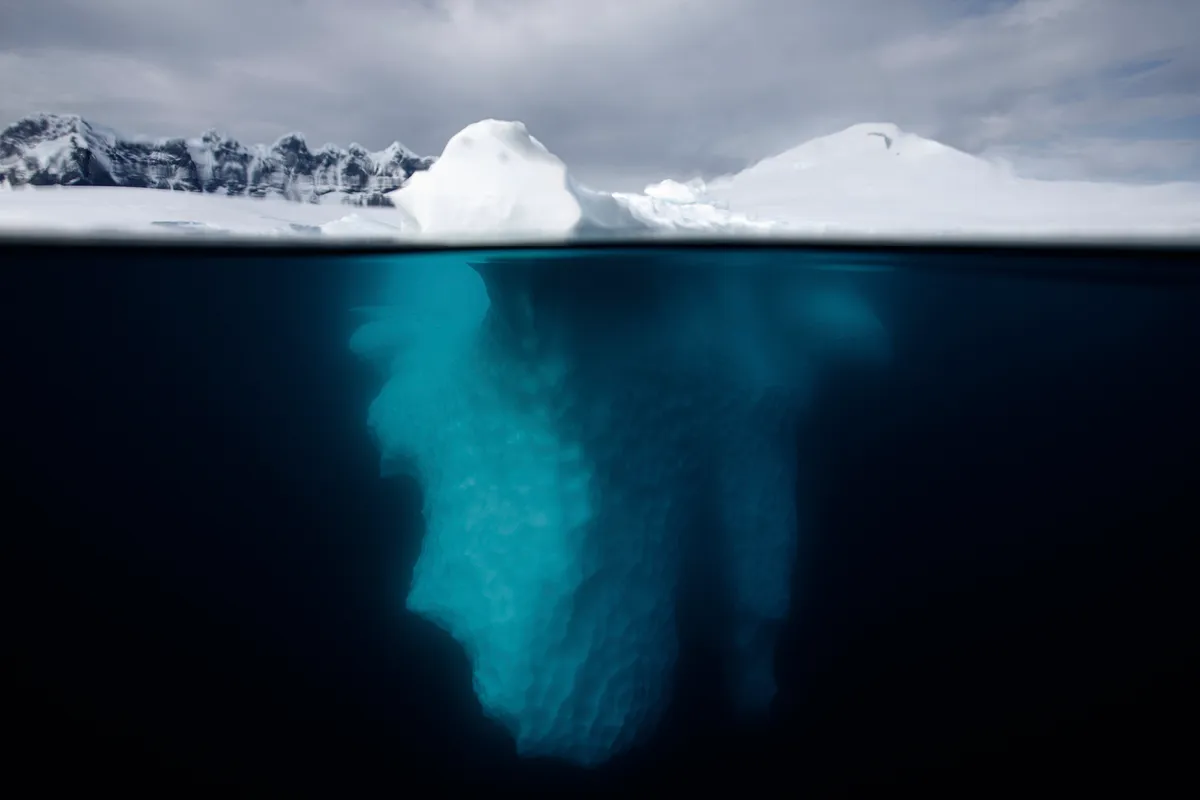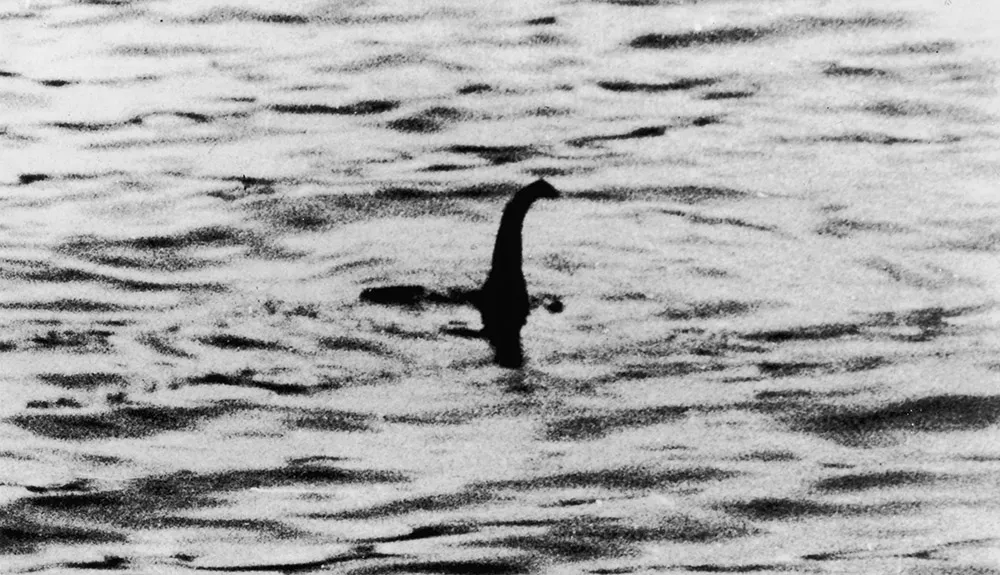It's not unusual to fear the unknown. Tales of monsters, bottomless chasms and ancient sea-dwelling people have long shaped legends of the deep ocean, but for some people with thalassophobia, it's more than just sci-fi. It can prevent them from having a cool dip in the sea, visiting the beach or enjoying a family holiday.
What exactly is thalassophobia? What are some of the common thalassophobia triggers? And, what does thalassophobia feel like?
If you want to read more about one of the most unexplored regions of Earth, we've put together this gallery of the 12 of the weirdest creatures that lurk in the deep sea, or why not dive into the bloated world of the blobfish with our complete guide.
What is thalassophobia?
Thalassophobia is an intense fear of large and/or deep bodies of water, such as oceans, seas and lakes. The word itself has Greek origins with 'phobia' meaning 'fear' and 'thalasso' meaning 'sea'.
There's no specific listing for thalassophobia in psychiatry's diagnostic bible, the Diagnostic and Statistical Manual (DSM) – instead, it would be considered one of many 'specific phobias', alongside countless others such as a fear of snakes, flying or needles.
Thalassophobia is not to be confused with aquaphobia, which is a far more general fear of water, such as showers, baths or even drinking water.
How common is thalassophobia?
It's difficult to be specific about the prevalence of this fear because of the lack of relevant survey data. However, for a clue, consider that aquaphobia has been estimated to have a prevalence of two to three per cent of the general population, and presumably all these people would also experience thalassophobia or at least be at risk of it.
A more anecdotal clue comes from the fact that there is an active forum on Reddit dedicated to thalassophobia which lists over a million members.

What causes thalassophobia? Where does it come from?
As with most specific phobias, thalassophobia is likely to develop in response to experiences (either early in life or later) and possibly also via learning from the fears of others. So, if someone has a scary experience as a child –such as plunging into deep water before they could swim –this could lay the foundations for their thalassophobia.
If they then start becoming avoidant of any large expanse of water, this is likely to intensify their fear. This is because when we stay away from those things we fear, we never get the chance to learn that they aren't so scary after all.
It's also possible to learn fears from other people. A child raised by parents who are scared and avoidant of deep water is likely to be at greater risk of developing thalassophobia.
A further background factor is one's disposition to fear and anxiety in general. There is a large genetic component to this vulnerability, so someone generally prone to fear and anxiety by virtue of their genetic make-up is more likely to develop thalassophobia in the event that they have a scary experience with deep water.
Read more about phobias:
- Where do phobias come from?
- Phobias, paranoia and PTSD: Why virtual reality therapy is the frontier of mental health treatment
- Listen to Prof Daniel Freeman talking about VR therapy on the Science Focus Podcast
What about the influence of thalassophobia on human history and culture?
From the Japanese Kappa to the Maori taniwha and the Loch Ness Monster, scary deep water creatures abound in ancient mythology and probably speak to the common occurrence of thalassophobia throughout human history.

More recently, just look at the popularity of the Jaws movie franchise, Deep Blue Sea, Open Water and other sea-based horror flicks – again, all testament to the power of deep water to inspire terror.
At the same time, clearly, the dread of the deep ocean did little to diminish the adventurous spirit of our sea-faring ancestors as they navigated the oceans discovering new lands.
However, thalassophobia might be having a negative influence on human activities. In 2021, a team of marine scientists penned an article in which they blamed the lack of public interest in deep-sea science (especially in comparison to space exploration) on our collective conscious and unconscious thalassophobia.
As these authors noted, thalassophobia seems to permeate their field: "...the profound depths are technically termed abyssal (3,000–6,000m) and hadal (>6000m), where abyssal means 'a deep or seemingly bottomless chasm' and hadal is derived from Hades, the lord and kingdom of the underworld, where souls go after death, in Greek mythology."
Are there any evolutionary (or other) benefits to having thalassophobia or other phobias?
Fear and anxiety are normal human responses. People who are utterly fearless and reckless tend not to live very long and don't get to pass on their genes.
So, our fears and anxieties protect us from danger – and of course deep water is very dangerous. It makes sense to fear it, to a degree. What happens with phobias, though, is that the scale of people's fear response is out of all proportion to the threat.
So, for example, a person with thalassophobia might start to feel quite panicky even at the mere thought of deep water – or if they see it in a film.

What does thalassophobia feel like?
So, how does thalassophobia present itself, and what physical and emotional symptoms might you feel? A person with thalassophobia will typically feel panic-stricken at the thought of being exposed to deep water; their heart will race, and they might tremble, sweat, and hyperventilate.
The more proximal and immediate the contact with deep water, the more intense these physiological reactions will be – so sitting in a dinghy above deep water may provoke a complete meltdown alongside intense fears of imminent death and horror.
What about the related conditions of megalohydrothalassophobia and megalophobia?
Just as thalassophobia is like a more specific version of aquaphobia, megalohydrothalassophobia is akin to a more focused version of thalassophobia, but this time with the person's fear centred on the creatures or other objects that might be found in deep water.
Meanwhile, megalophobia is another broader category of fear that is triggered by massive things, such as mountains, skyscrapers, elephants or possibly large expanses of water –hence the connection with thalassophobia.
What are some common thalassophobia triggers?
Images of large seas and oceans can be triggering, as can videos or pics of underwater creatures.

Depending on the severity of the thalassophobia, a person might be triggered by the mere thought of deep, open water. Other situations likely to cause problems may include bridges over deep water, flying over seas and oceans, and films featuring oceans and underwater scenes.
For some people with thalassophobia, they might be fine until they lose sight of land. Others could be triggered simply by finding themselves out of their depth, at the seaside or in a swimming pool.
How to cope with or even overcome thalassophobia
For people with mild thalassophobia, it might not be too much of a problem in everyday life. However, if it becomes a fearful preoccupation or if it starts to interfere with everyday life or meaningful goals and aspirations –such as going on a cruising holiday with the family –then it's definitely worth considering getting some treatment.
Generally speaking, phobias are highly treatable. Cognitive Behavioural Therapy based on "gradual exposure" treatment would be the usual go-to approach. Your therapist will gradually expose you to water-related stimuli (perhaps starting with your imagination and progressing to pictures and video, and culminating in actually swimming or boating over water) while teaching you relaxation techniques to cope each step of the way.
Gradually, you will become desensitised and through exposure to your fears, you will learn that the danger is not so threatening after all.
Read more:
